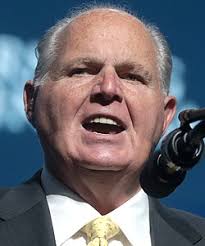
Introduction
Rush Limbaugh, a renowned American talk radio host, left an indelible mark on the broadcasting landscape before his passing in February 2021. His impact extended beyond the boundaries of the United States, influencing political discourse and media practices in Canada and around the world. Limbaugh’s approach to talk radio helped shape modern conservative commentary, making his legacy relevant even today as discussions around media influence and political rhetoric continue to evolve.
The Rise of Limbaugh
Born on January 12, 1951, Limbaugh began his radio career in the late 1970s but skyrocketed to fame in the 1980s with his nationally syndicated show. His provocative style and unapologetic conservative viewpoints attracted millions of listeners, transforming the radio industry. Limbaugh was instrumental in normalizing right-wing talk radio, and he sold his show to over 600 stations by the mid-1990s. His ability to blend humor, commentary, and entertainment reshaped expectations for political engagement through audio media.
Influence on Conservative Media
Beyond radio, Limbaugh’s influence permeated other media channels, including television and print. His controversial takes on topics such as immigration, healthcare, and environmentalism resonated with conservative audiences and helped fuel the rise of figures like Fox News’ Sean Hannity and Tucker Carlson. His insistence on addressing ‘political correctness’ positioned him as a voice of resistance for many viewers and listeners who felt alienated by mainstream media narratives.
Controversies and Criticisms
Despite his tremendous following, Limbaugh faced significant backlash throughout his career. His comments on various issues sparked controversies, especially regarding race, gender, and social issues. Critics argue that his rhetoric contributed to a polarized political environment and encouraged divisive sentiments in American politics. Nonetheless, Limbaugh’s supporters laud him for giving a voice to those who felt unheard, asserting that his candidness brought important topics to the forefront of national discussions.
Conclusion
Rush Limbaugh’s sudden passing marked the end of an era in talk radio, yet his influence remains undeniable. His legacy continues to spark discussions about media responsibility and the power of one individual’s voice in shaping public opinion. As new generations of broadcasters emerge, the lessons learned from Limbaugh’s techniques—both commendable and controversial—will likely inform future discourse in both Canada and the United States. The ongoing evolution of media may provide new platforms for similar voices, ensuring that Limbaugh’s impact is felt for years to come.



